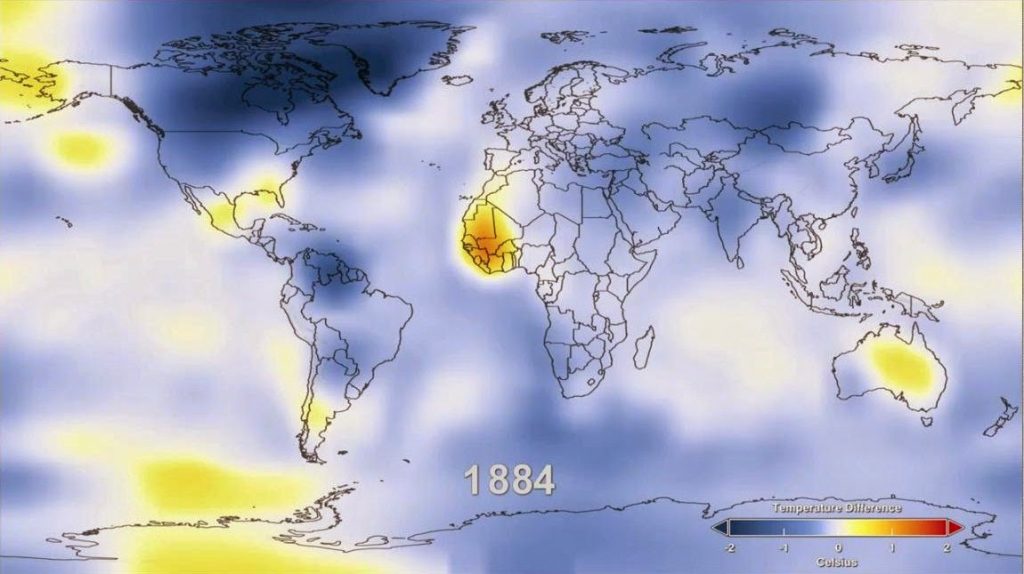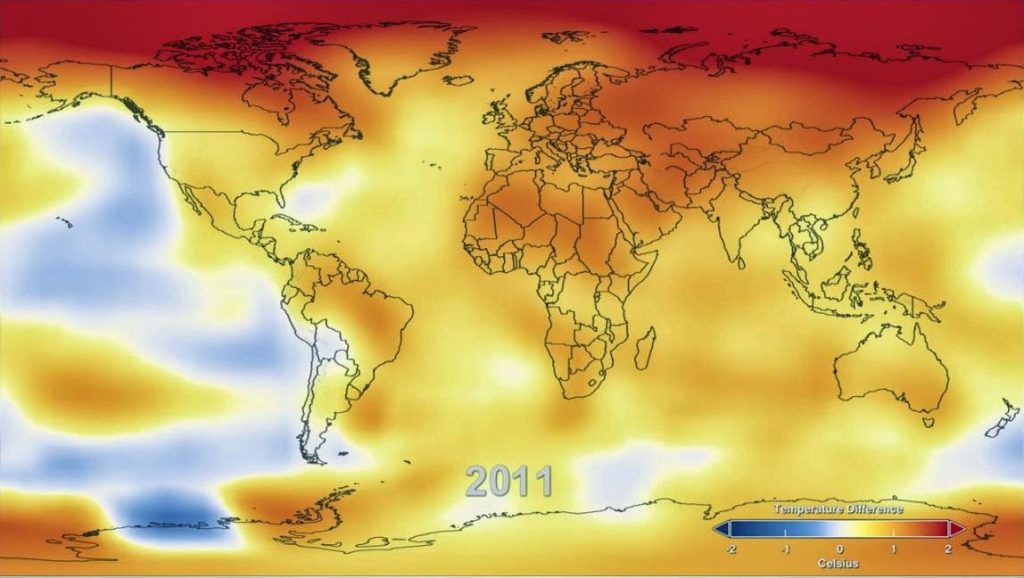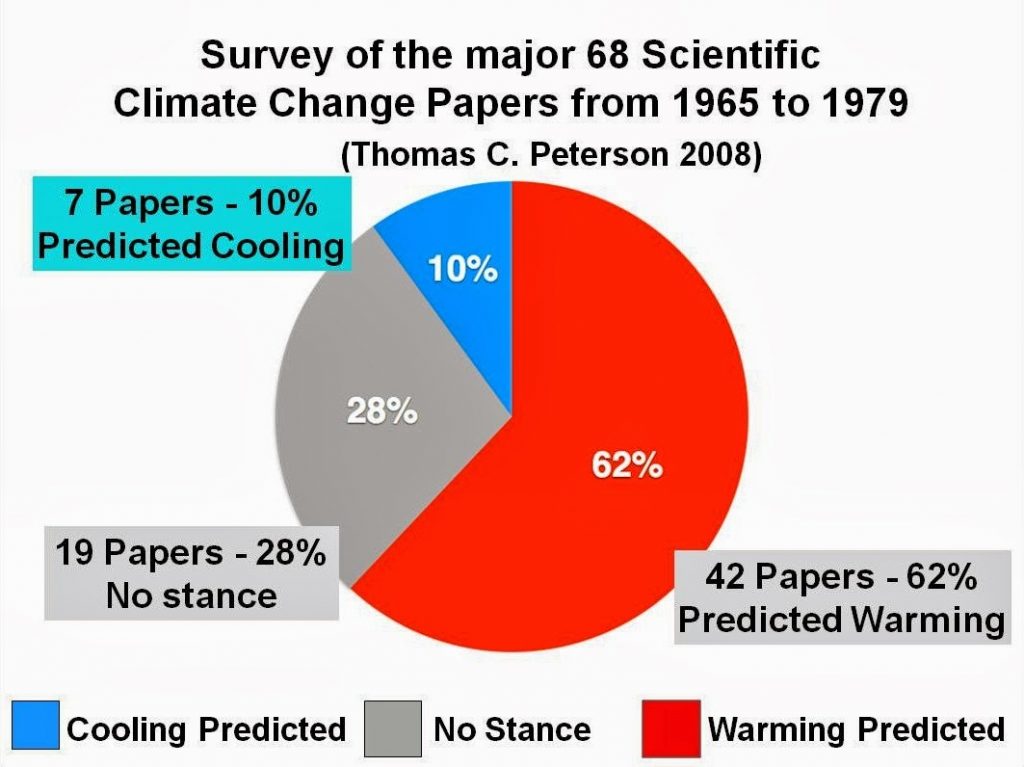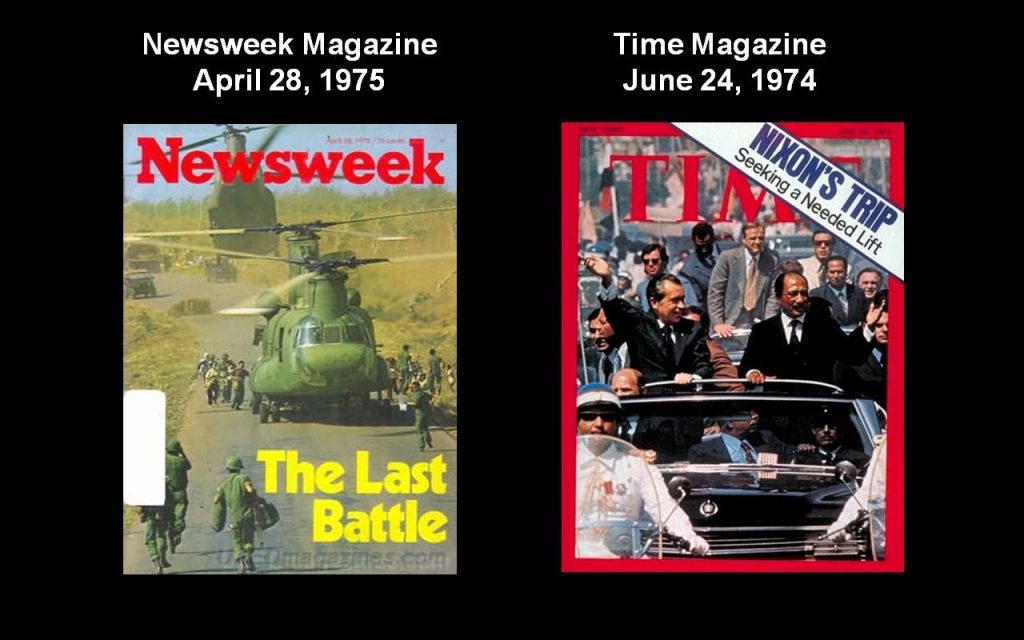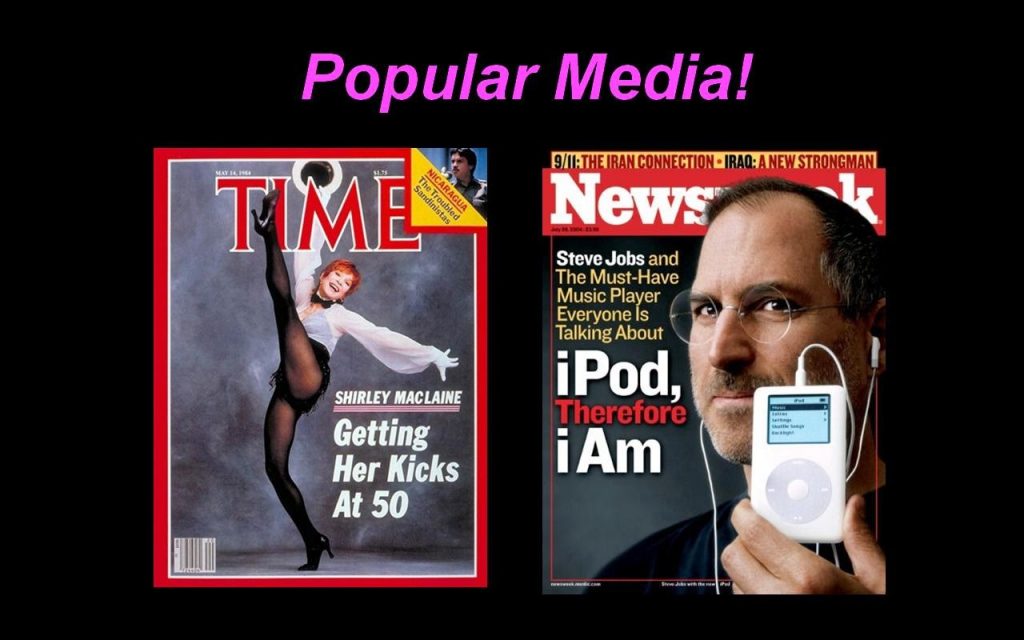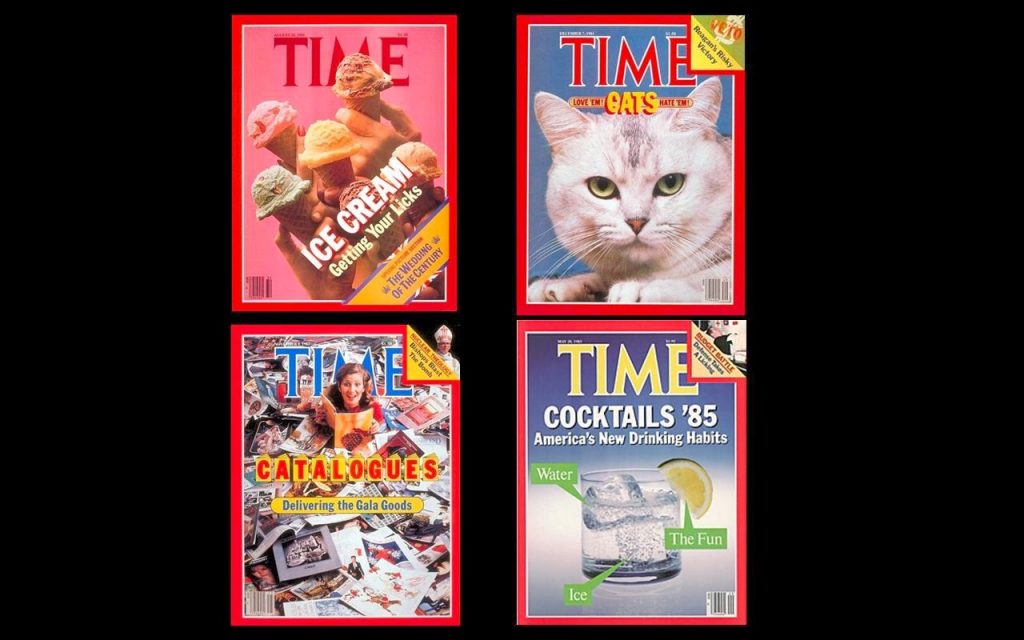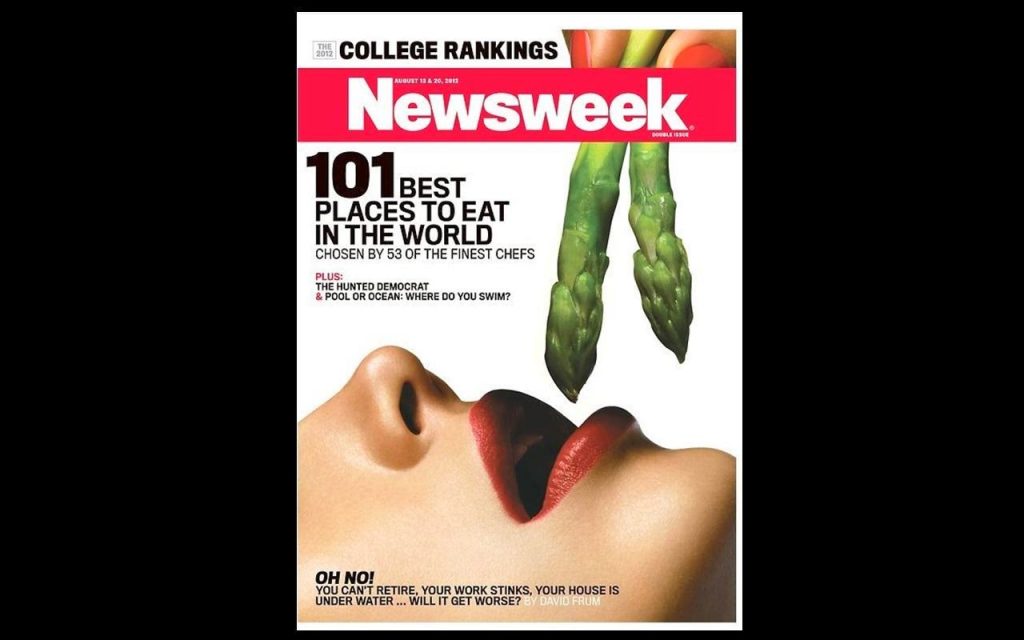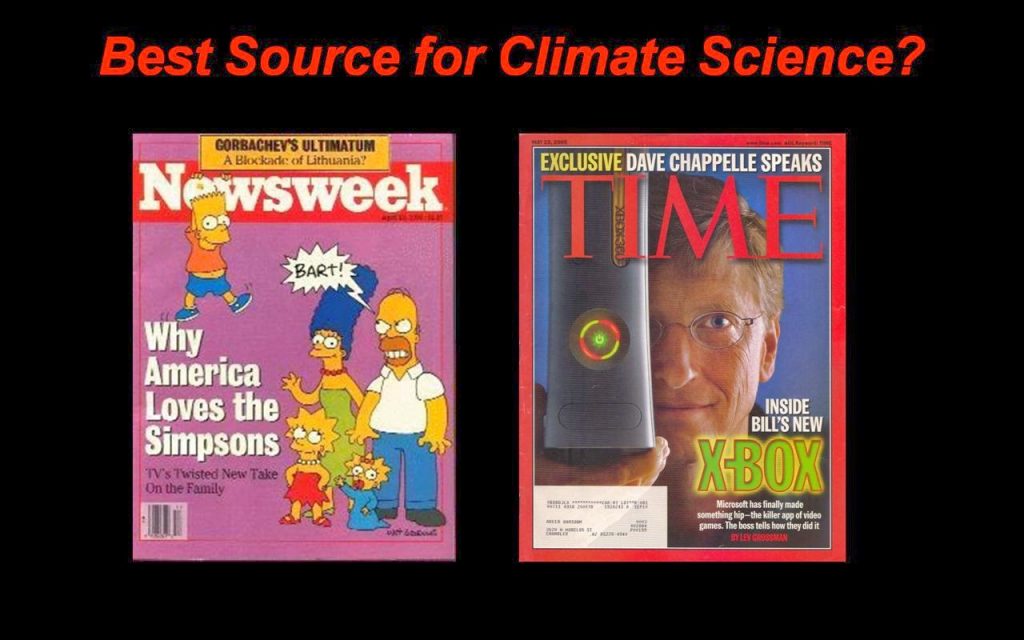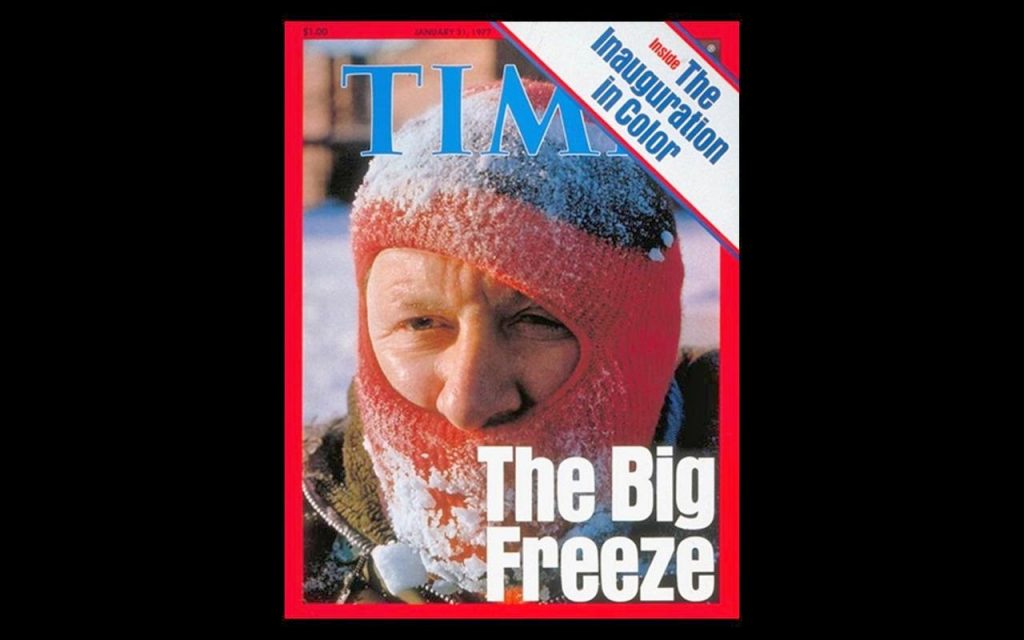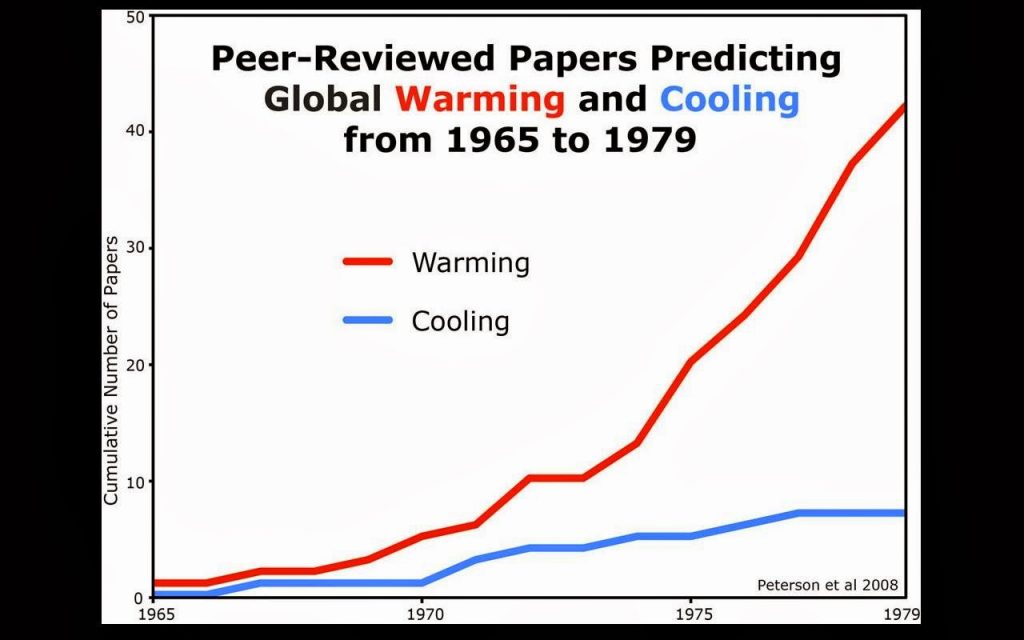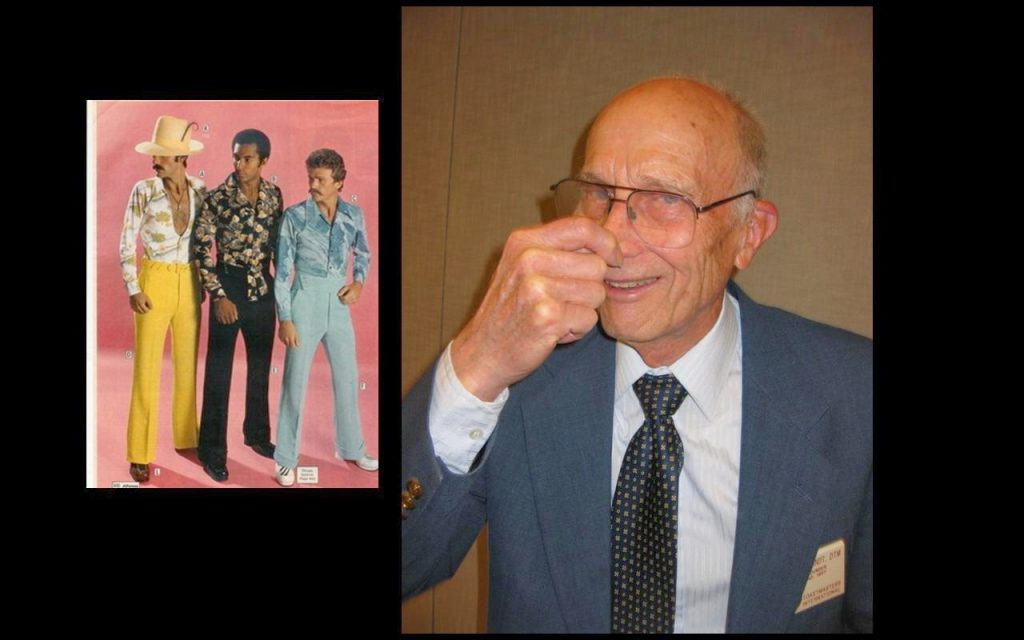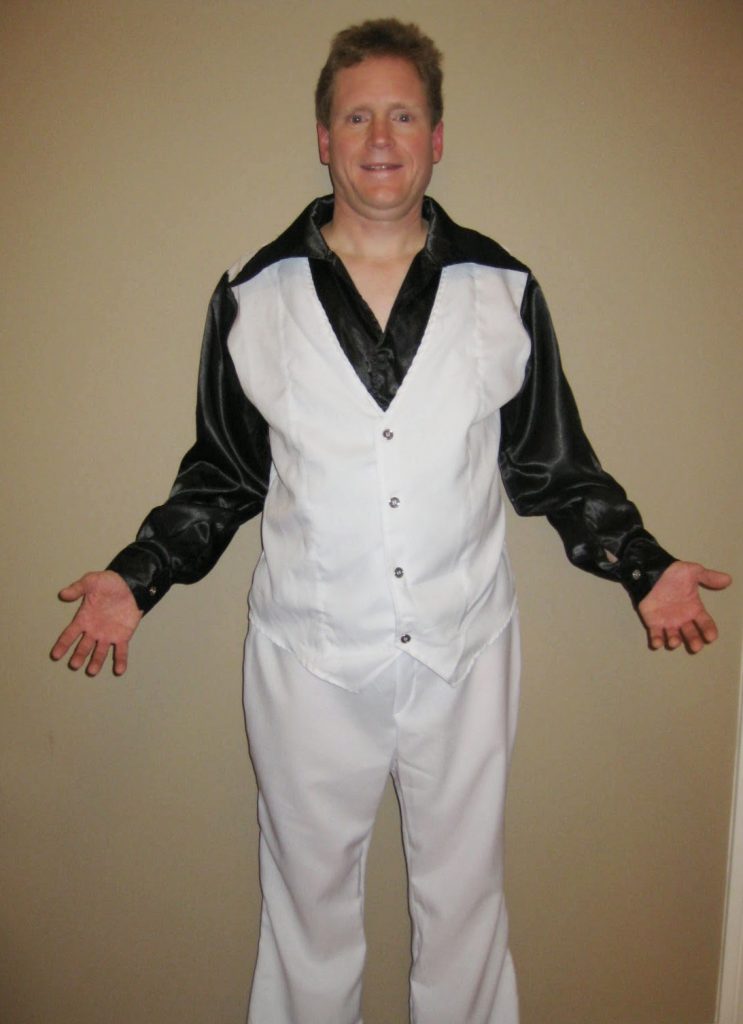“People who say science is not about consensus, they do not understand science.” – Dr. Barry Bickmore, Professor of Geologic sciences at Brigham Young University, from his YouTube lecture, “How to Avoid the Truth about Climate Change.”
This Barry Bickmore quote is a vital to know and to be able to respond with quickly. After I have given climate change presentations, I have actually had climate change contrarians challenge me with statements like “Scientific consensus does not matter.”
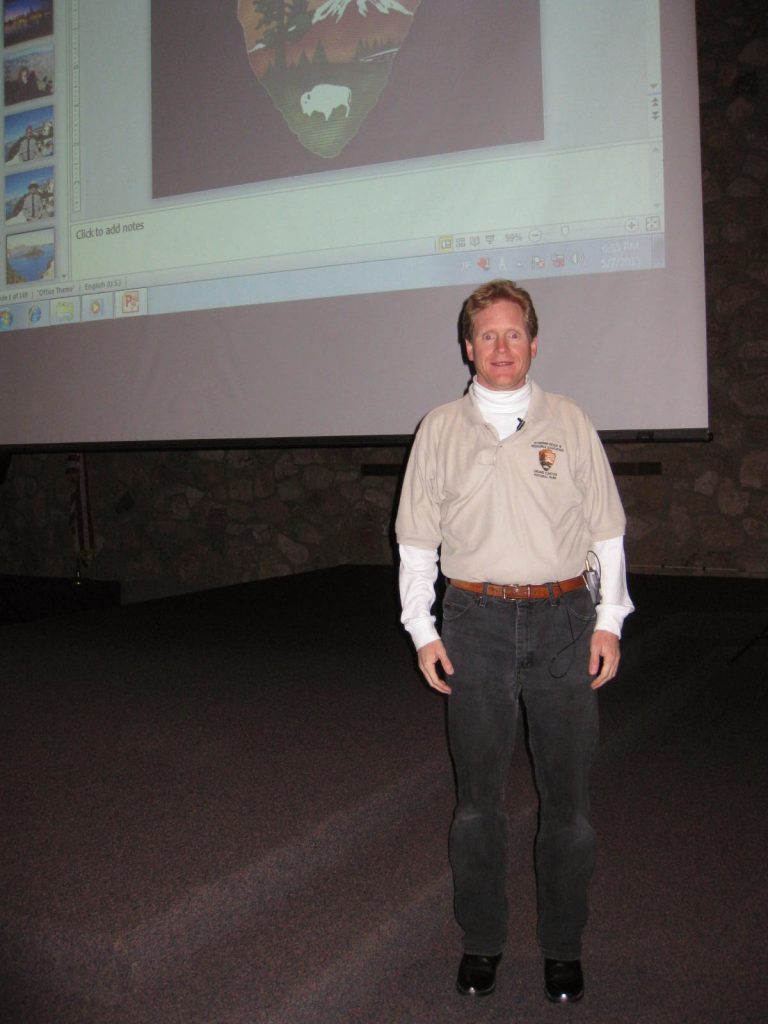 |
| Brian Ettling giving a climate change presentation at the Shrine of the Ages Auditorium, Grand Canyon National Park, May 7, 2013. |
Most vividly, a gentleman confronted me with that statement in Grand Canyon National Park after I gave a climate change presentation to over 200 park visitors at the Shine of the Ages Auditorium at South Rim Village on May 7, 2013. Amazingly, he said this in front of a high school science teacher who teaches at the school at the south rim of the Grand Canyon. The contrarian interrupted my pleasant conversation with the teacher to make his argument, even giving an example of Galileo. The teacher and I rolled our eyes. In my response to the visitor, I stuck to my guns insisting that scientific consensus does matter.
Because of previous writings I wrote about Galileo, I debunked his Galileo argument. From Dr. Barry Bickmore’s video, I learned that Galileo was not rejecting the scientific consensus of his time, he was rejecting against a belief of the Catholic Church. Unfortunately, this Grand Canyon visitor just stormed away because I would not capitulate to his thinking. However, afterwards I wish I had responded to this contrarian, “Do you realize you are saying this in front of a science teacher? If you were her student, she would probably flunk you for making such a statement.”
Why is scientific consensus vital to science?
For non-scientists like me, it is crucial to know why scientific consensus is the gold standard for science. As your will read later below, scientific consensus is just as important as being judged by a jury of your peers in a court of law.
Dr. Barry Bickmore had this explanation on the importance of scientific consensus:
“We have always had (scientific) loners out there. The brilliant loners who come up with some great idea. The problem is that they are often not perfect ideas. It did not pick up any legs because it did not have what the modern scientific community has, which is the community itself. Whenever a scientist presents an idea that is not perfect, there is going to be dozens of other scientists beating the crap out of it for an extended period. They do this to work out all the kinks to make it better than before. That is the difference the Greek philosophers and modern science: consensus.”
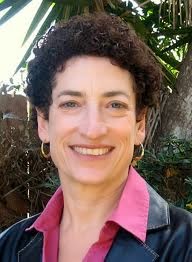 |
| Dr. Naomi Oreskes, Image Source: fas.harvard.edu |
Science historian Dr. Naomi Oreskes, professor at Harvard University, has this description of science in her book, Merchants of Doubt:
“For many of us the word ‘science’ does not actually conjure visions of science; it conjures visions of scientists. We think of the great men of science – Galileo, Newton, Darwin, and Einstein – and imagine them as heroic individuals, often misunderstood, who had to fight against conventional wisdom or institutions to gain appreciation for their radical new ideas. To be sure, brilliant individuals are important part of the history of science; men like Newton and Darwin deserve the place in history that they hold. But if you asked a historian of science, When did modern science begin? She would not cite the birth of Galileo or Copernicus. Most likely, she would discuss the origins of scientific institutions.”
Oreskes in the next paragraph then makes it clear that science is not about individuals, but institutions.
“From its earliest days, science has been associated with institutions – the Accademia del Lincei, founded in 1609, the Royal Society of Britian, founded in 1660, the Académie des Sciences in France, founded in 1666 – because scholars (savants and natural philosophers as they were variously called before the 19th century invention of the word “scientist”) understood that to create new knowledge they needed a means to test each other’s claims. Medieval training had largely focused on study of ancient texts – the perservation of ancient wisdom and the appreciation of texts of revelation – but later scholars began to feel the world needed something more. One needed to make room for new knowledge.”
Scholars arriving after the Medieval Ages decided that new knowledge or science had to be accepted through institutions, according to Oreskes:
“Once the door was opened to the idea of new knowledge, however, there was no limit to the claims that might be put forth, so one needed a mechanism to vet them. These were the origins of the institutional structures that we now take for granted in contemporary science journals, conferences, and peer review, so that claims could be reported clearly and subject to rigorous scrutiny.
Science has grown exponentially since the 1600s, but the basic idea has remained the same: scientific ideas must be supported by evidence, and subject to be accepted or rejected.”
Okeskes tells us that science “does not provide proof. It only provides the consensus of experts, based on organized accumlation and scrutiny of evidence.”
12 Angry Men shows us the importance of scientific consensus
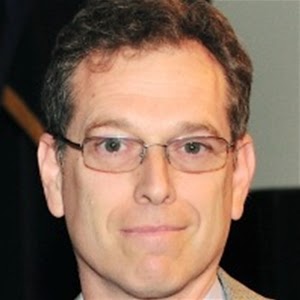 |
| Dr. Jack Fishman Image Source: slu.edu |
In 2012, Dr. Jack Fishman, Professor of Earth and Atmospheric Sciences and Director of the Center for Environmental Sciences at St. Louis University, shared with me a great story that illustrates the importance of scientific consensus.
A few years ago, Dr. Fishman took a Management Training Course in Virginia with a class of 24 other participants. During the training, the entire class watched the 1957 movie, 12 Angry Men, starring Henry Fonda.
The film is a fictional story of a jury of 12 men as they deliberate the guilt or acquittal of a defendant on the basis of reasonable doubt.
After watching the film, Fishman and all the class participants then ranked individually on their own sheet of paper the jury numbers from 1 to 12, with Henry Fonda as #1. The goal was to see if the participants could accurately rank how the individual jury members switched their votes from guilty to not guilty. As individuals, none of them got the correct order. The best that anyone did was miss only one in the sequence. Only one person of the 24 did that well.
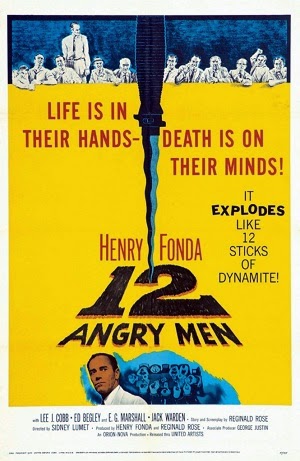 |
| Image Source: wikipedia.org |
The class was then divided into 4 groups of 6 students to discuss the movie and reach a consensus. Working as a cooperative team, the 4 groups did get it right, with three out of the four correctly ranking 100% of all 12 jurors. Only one group had a small discrepancy, but it was still much better than the first individual rankings.
This shows evidence that groups of people working together as a committee solve a problem more effectively than an individuals.
Even more, this story shows the importance of consensus in science.
Yes, individuals like Galileo, Issac Newton, Charles Darwin, and Albert Einstein can make remarkable scientific discoveries. However, when a group of scientists or scientific institution comes along afterwards and verifies the discovery, then we know we have gained new knowledge. When the scientists conduct their own independent tests, try to replicate the experiment and results, looks for the weakness, and do what Barry Bickmore calls, ‘beating the crap out of it,’ then we know it is new scientific knowledge.
Climate Change has almost 100% Scientific Consensus
As science writer Graham Wayne wrote on Skepticalscience.com, “Science achieves a consensus when scientists stop arguing.”
The scientific community stopped arguing if climate change is real and predominantly caused currently by humans decades ago. Numerous scientific studies show that at least 97% of climate scientists accept the idea that climate change is real, happening right now, it is bad, but we can limit it if we act fast. In 2003, Dr. Naomi Oreskes wrote a published peer reviewed paper where she conducted a survey of 928 peer-reviewed writings on the subject ‘global climate change’ published between 1993 and 2003. The result of her survey was that not a single paper rejected the consensus position that global warming is human caused.
Even more, Dr. James Lawrence Powell conducted a very broad comprehensive search of peer-reviewed scientific articles published between 1 January 1991 and 9 November 2012 that have the keyword phrases “global warming” or “global climate change.” Powell identified 13,950 papers, but only 24 which argued that humans were not the primary cause of global warming. In 2014, he updated his survey to include studies published from November 12, 2012 to December 21, 2013. This time, he found only one study published during this time which argued that global warming was not caused by human activity.
 |
| Image Source: www.jamespowell.org/Original%20study/originaltsudy.html |
This consensus on climate change is actually very old news.
In 1997, when he was administrator of the U.S. National Oceanic and Atmospheric Administration, D. James Baker stated, “There’s a better scientific consensus on (climate change) than on any issue I know — except maybe Newton’s second law of dynamics.”
In 2011, a scientist at Washington University in St. Louis told me that ‘about the only thing scientists can agree upon is free beer. Yet, almost all of them agree on that climate change is real, happening right now, and is predominantly caused by humans currently.’
Scientists love to argue when they are in conversations. However, they all agree on a few items, such as the earth is round, it revolves around the sun, gravity is real, dinosaurs once existed up to 65 million years ago, smoking causes cancer, and climate change is real.
In 2001, when Dr. Donald Kennedy was editor-in-chief of Science Magazine, he argued,
“Consensus as strong as the one that has developed around this topic [climate change] is rare in science.”
Science is a dictatorship of the evidence
So why are almost 100% of climate scientists not arguing if climate change is real?
As Graham Wayne writes in Skepticalscience.com: “Scientists just give up arguing because the sheer weight of consistent evidence is too compelling, the tide too strong to swim against any longer. Scientists change their minds on the basis of the evidence, and a consensus emerges over time. Not only do scientists stop arguing, they also start relying on each other’s work.”
Scientists stopped arguing decades ago because there is multiple lines of evidence pointing to the fact that climate change is real, happening right now and is caused primarily right now by humans. The 2009 State of the Climate Report of the US National Oceanic and Atmospheric Administration (NOAA) tells us that climate change is real because of rising surface air temperatures since 1880 over land and the ocean, ocean acidification, sea level rise, glaciers melting, rising specific humidity, ocean heat content increasing, sea ice retreating, glaciers diminishing, Northern Hemisphere snow cover decreasing, and so many other lines of evidence.
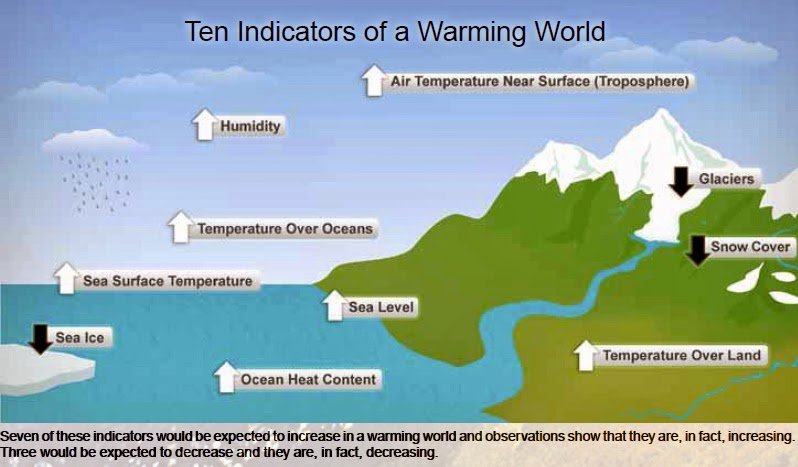 |
| Image Source: www1.ncdc.noaa.gov/pub/data/cmb/bams-sotc/2009/bams-sotc-2009-brochure-lo-rez.pdf |
Even more, how do we know that climate change is prominently influenced by humans currently? The 2009 State of the Climate report gives these top indicators: humans emitted 30 billion tons of of CO2 into the atmosphere each year from the burning of fossil fuels (oil, coal, and natural gas), less oxygen in the air from the burning of fossil fuels, rising fossil fuel carbon in corals, nights warming faster than days, satellites show less of the earth’s heat escaping into space, cooling of the stratosphere or upper atmosphere, warming of the troposphere or lower atmosphere, etc.
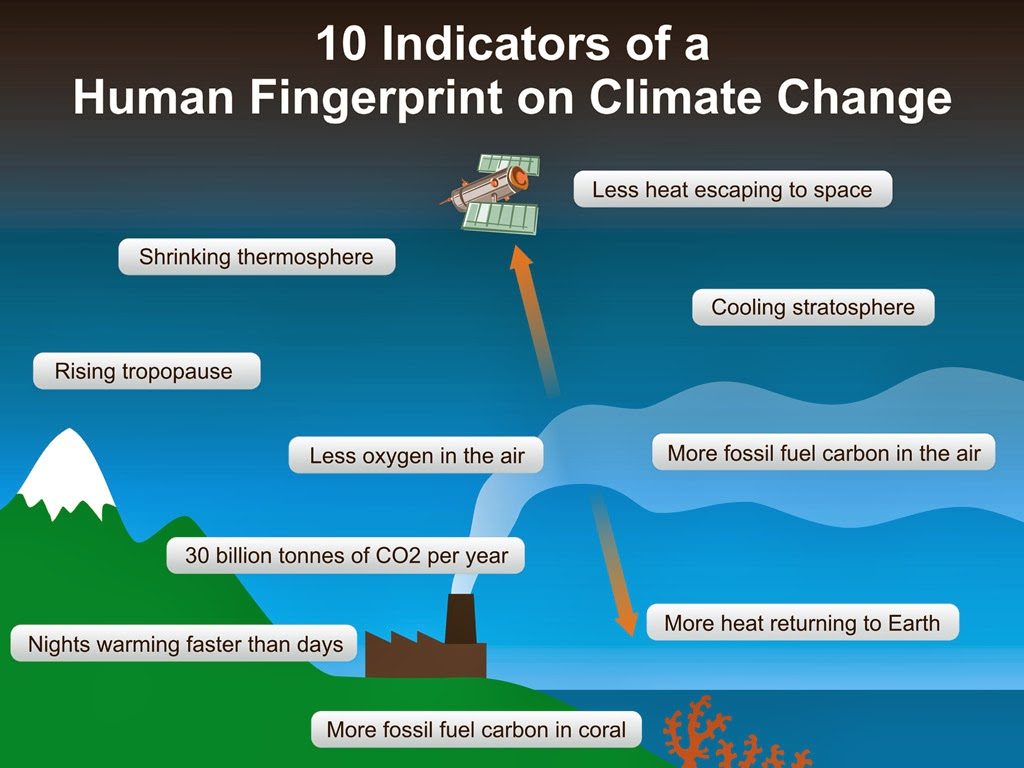 |
| Image Source: www.skepticalscience.com/10-Indicators-of-a-Human-Fingerprint-on-Climate-Change.html |
If this was a CSI detective show, humans, especially the fossil fuel industry, would have been arrested long ago, thrown in jail, tried, and convicted of damaging our planet’s life support system because of all the vast evidence of climate change.
As author John Reisman wrote, “Science is not a democracy. It is a dictatorship. It is the evidence that does the dictating.”
The vast amount of scientific evidence shows us that climate change is real, happening right now, it is bad, but we can limit it if we act fast.
Like 12 Angry Men, let’s weigh out the evidence, and form a strong consensus on climate change
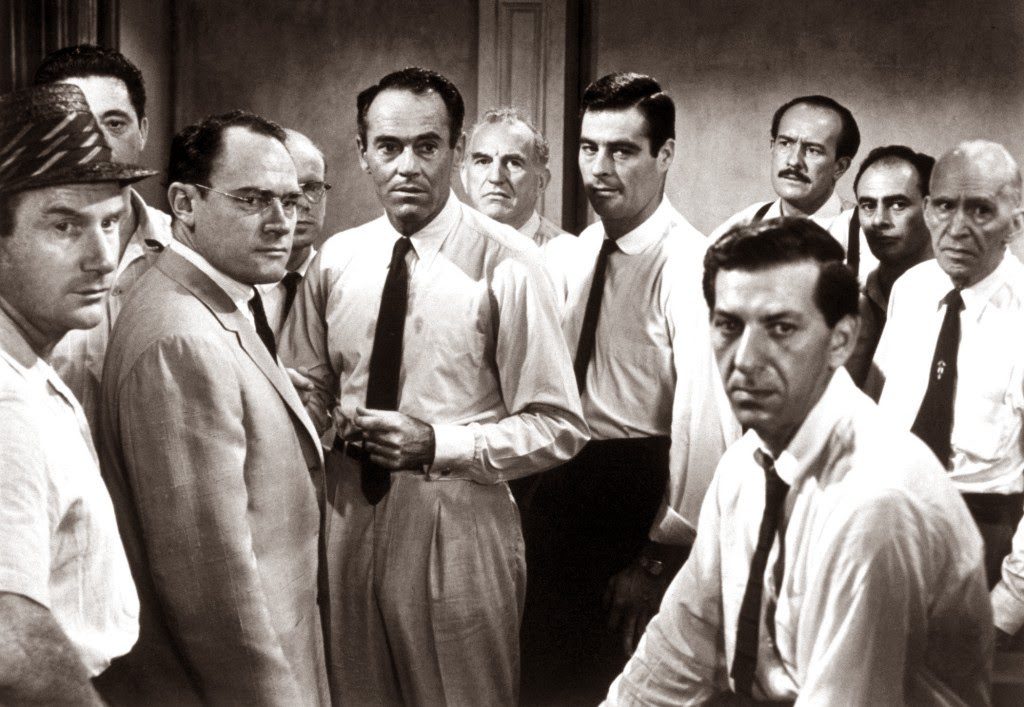 |
| 12 Angry Men, 1957 film by distributed by United Artists |
Recently, I watched 12 Angry Men on YouTube. My father first showed it to me in 1983. I watched it again because of my conversation with Dr. Fishman and to write this blog post.
This is a great film to watch because of the story, the acting, the conflict between the characters, and most of all, the process of how they reached a consensus jury decision. In the beginning of the movie, it appears to be an air tight case against the defendant. However, as the jury discusses the case, the evidence does not seem to be solid enough to reach a unanimous vote for guilty.
The movie starts with the almost all of the jury in an initial rush judgement to convict. However, when the jury was forced to weigh the evidence, it leads each individual jury member making a different decision.
Now we are called to be like our protagonist, the character played by Henry Fonda, in 12 Angry Men. Science has presented us with an overwhelming amount of solid evidence that current climate change is real, caused primarily by us, it is real, it is bad, almost 100% of climate scientists agree with this science, and we can limit the impact of climate change if we choose.
Now it is up to you and me to convince our undecided peers, such as our family, friends, neighbors, and co-workers, that we must act fast to reduce the impact of climate change.
In his 2009 talk, “A Really Inconvenient Truth,” Dan Miller, Managing Director of The Roda Group, a venture capital group focused on clean technology, had this quote about the urgency of climate change:
“We will see it, our kids will live it, and there’s a question of whether our grandkids will make it through or not.”
12 Angry Men shows us that persuading others is not an easy task. However, convincing our peers that we must act NOW on climate change is crucial for us, our children, grandchildren, and future generations.




